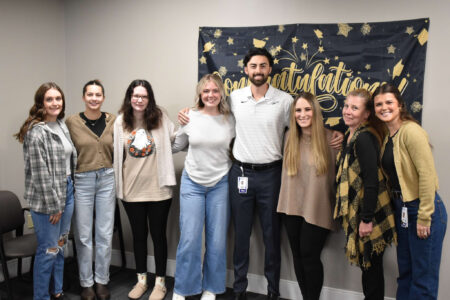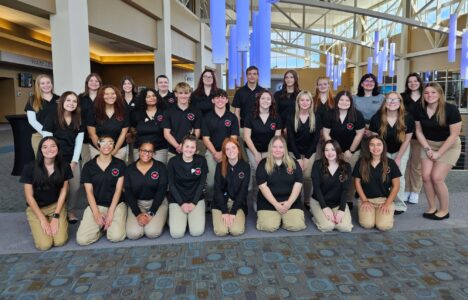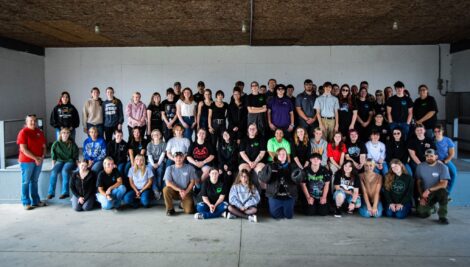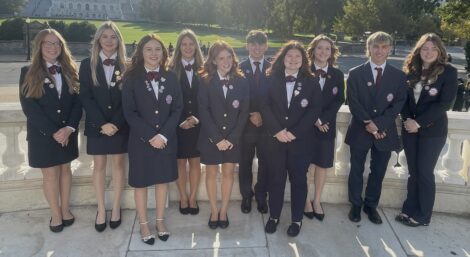Drone education taking off at Jefferson County JVS
BLOOMINGDALE — A new curriculum for criminal justice students is taking off with the addition of drones at Jefferson County Joint Vocational School.
Since early February, 17 juniors and seniors have been gaining knowledge that could help them as safety officials by utilizing unmanned aircraft vehicles, or UAV’s. They have been studying the DroneSmarts curriculum and practicing with two DJI Mavic Air 2’s, two computer flight simulators and 23 small indoor drones. Supervisor/Assistant Principal Andy Long said the drones were acquired in July and the program was started earlier this year.
“(JVS Superintendent Todd Phillipson) and I were discussing ways to incorporate new and emerging technology into our programs,” Long explained. “I was talking with my uncle Mike Meintel, who at the time served as the security administrator with the state Office of Prisons, about drone technology in the prison system and he said drones are frequently used to boost correctional facility security. I then sent new products and the drone curriculum to (criminal justice instructor Jamie Freeman) and we moved forward from there.”
Students are preparing for their Federal Aviation Administration Part 107 Remote Pilot Certification, which permits them to fly a drone for commercial purposes and not solely for recreation. Long said passing the FAA 107 exam would allow the students to pilot drones for such things as surveillance and security.
“Drones are being used more and more in the field of criminal justice, so I wanted the kids to have a basic understanding so they could stand out if flying drones was part of the job they earned,” added Freeman. “They also can earn six points towards graduation if they pass the remote pilot certification.”
Obtaining the certification is a multi-step process which entails demonstrating that holders understand the regulations, operating requirements and procedures for safely flying drones. To be eligible, first-time pilots must be at least 16 years old; be able to read, speak, write and understand English; be in a physical and mental condition to fly a drone; and pass the initial aeronautical knowledge exam “Unmanned Aircraft General-Small UAG.”
The course outlines 15 modules to learn about drone flying, legal issues cited by the FAA and Federal Communications Commission and common-sense safety issues.
The first portion of the DroneSmarts curriculum covers seven nodules centering on head knowledge, and topics range from learning about drones to government regulations. The second portion, which is six nodules, uses hands-on experience to differentiate between STEM and STEAM programs and focus on secondary school students or implementing adult occupational technology. The three remaining nodules are for a baseline pretest, midterm and final exam. She continued that they have not signed up for exams, so there is no test date as of yet. Still, it has been a unique form of education.
“It has been a very interesting experience,” Freeman commented. “The students have enjoyed it and so have I.”
Juniors Jeremiah McClain and Juston Swift have completed the bookwork and are on to learning the hands-on portion of piloting the apparatus.
“It’s very easy,” said McClain, who attends Indian Creek High School. “(It helps) if you wanted to work with the police to look for suspects or with the Army to fly heat drones.”
“It’s all about hand-eye coordination,” added Swift, a student at Buckeye Local High School. “We’re almost done with the whole process. If this course didn’t have drones, I wouldn’t be able to fly them (in my career).”





